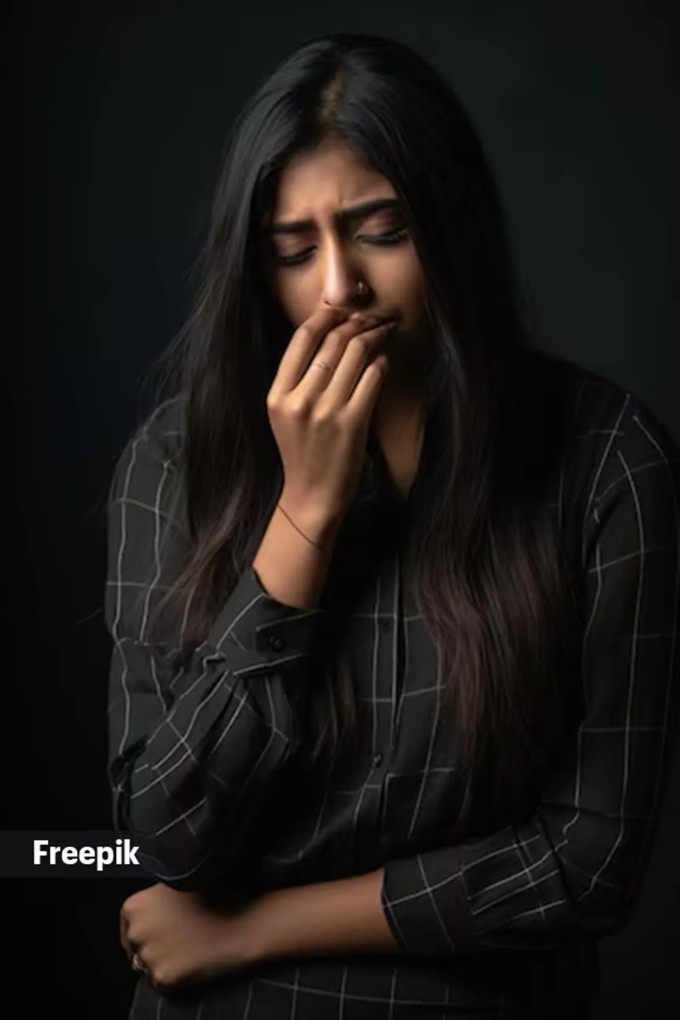‘Actresses are not meant to be drinking alcohol:’ Manisha Koirala on receiving ‘flak’ for her personal life
Actor Manisha Koirala recently opened up about being advised to conceal her personal choices including the fact that she drank alcohol and had a boyfriend.
She shared that during the making of her debut film Saudagar, Koirala was asked to hide the fact that she was having vodka at a party because “actresses are not meant to be drinking alcohol.”

She told Filmfare, “At the time of Saudagar, there was a coke mixed with vodka, and I was told by people around me not to tell people that I am drinking vodka because actresses are not meant to be drinking alcohol. I was told to say that I’m drinking coke. I learnt that new thing. I told my mom, ‘I am drinking coke’, and she knew I put vodka in it and she said, ‘Listen, if you are drinking vodka, say you are drinking vodka, don’t say you are drinking coke, don’t lie for such small little things’.”
Reflecting on the prevalence of sexism within the film industry in those days, she said, “If I was dating somebody, I am dating somebody. You want to judge me? Go ahead and judge me but that’s me, this is me and I lead my life on my own terms.”
“I faced some flak for it because, in those days, the heroes could have many girlfriends, and they were called macho men, but the actress was supposed to be this, ‘no no no, nobody is touching me’ and ‘we are very untouched’,” she added.
This isn’t a problem that exists only in Bollywood, but it is a reflection of the wider society. Cultural norms and societal policing have a pervasive influence on women’s lives in India. Koirala’s statement serves as a microcosm of a larger issue — the ongoing struggle for personal autonomy and freedom of choice that women across India face, regardless of their social standing or professional success.
Role of cultural norms in India in shaping societal expectations regarding women’s behaviour
Neha Cadabam, senior psychologist and executive director at Cadabams Hospitals and Mindtalk, explains, “India’s rich cultural tapestry is interwoven with traditions and norms that have evolved over centuries. These norms often dictate specific gender roles and expectations, particularly for women. Traditional values place a strong emphasis on family honour, modesty, and adherence to prescribed behaviours. This translates into societal expectations regarding women’s conduct, often limiting their personal choices in areas such as relationships, career paths, and lifestyle decisions.”
 Societal policing of women’s personal choices can have profound psychological and social repercussions.(Source: Freepik)
Societal policing of women’s personal choices can have profound psychological and social repercussions.(Source: Freepik)
These cultural norms are often reinforced by social institutions like family, community, and religion, she informs. For example, women may face pressure to marry early, choose a career deemed “suitable” for their gender, and adhere to strict dress codes and social interactions. These expectations can limit women’s autonomy and agency, leaving them with little room for personal expression or deviation from the norm.
Psychological and social impact of societal policing
Societal policing of women’s personal choices can have profound psychological and social repercussions. The pressure to conceal aspects of their personal lives, such as relationships or lifestyle choices, “can lead to a range of negative outcomes.”
Cadabam says, “Psychologically, women may experience chronic stress, anxiety, and depression due to the constant need to maintain a façade. They may develop low self-esteem, feeling that their authentic selves are not acceptable or worthy of love and respect. In extreme cases, the psychological burden can lead to self-harm or suicidal ideation.”
Socially, she adds, societal policing can isolate women and limit their social networks. They may “fear judgement or ostracism if they reveal their true selves, leading to social withdrawal and loneliness.” This can further exacerbate mental health issues and create a vicious cycle of isolation and distress.
Furthermore, societal policing can limit women’s access to information and resources, as they may be hesitant to seek help or guidance for fear of being judged or shamed. This can have serious consequences for their health and well-being, as they may not receive the necessary support for physical or mental health concerns.
Significant changes within Indian society to challenge these restrictive norms
In recent years, India has witnessed a growing movement challenging and changing restrictive norms regarding women’s personal choices. Cadabam notes, “Empowered by education, economic independence, and changing social attitudes, women are increasingly asserting their autonomy and demanding greater freedom.”
Several organisations and initiatives, she says, are working to raise awareness about gender equality and advocate for women’s rights. “These efforts include campaigns to promote women’s education and empowerment, legal reforms to address discriminatory practices, and public discourse challenging traditional gender roles.”
While progress has been made, the struggle for women’s personal freedom in India is ongoing. Changing deeply ingrained cultural norms takes time and sustained effort. However, the growing momentum of the movement for gender equality offers hope for a future where women in India can fully exercise their autonomy.
📣 For more lifestyle news, click here to join our WhatsApp Channel and also follow us on Instagram
Disclaimer: The copyright of this article belongs to the original author. Reposting this article is solely for the purpose of information dissemination and does not constitute any investment advice. If there is any infringement, please contact us immediately. We will make corrections or deletions as necessary. Thank you.
